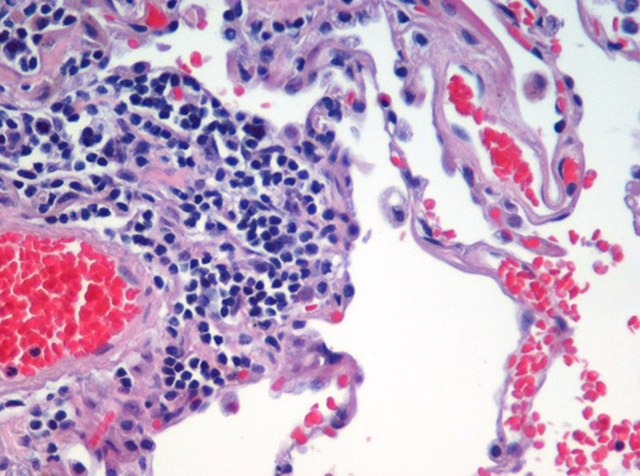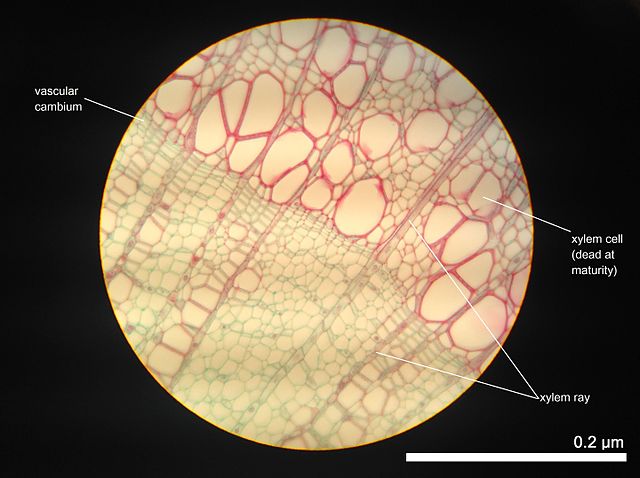In cell biology, the meristem is a type of tissue found in plants. It consists of undifferentiated cells capable of cell division. Cells in the meristem can develop into all the other tissues and organs that occur in plants. These cells continue to divide until they become differentiated and lose the ability to divide.
Note the long spur of the above flower. Spurs attract pollinators and confer pollinator specificity. (Flower: Linaria dalmatica)
Complex leaves of Cardamine hirsuta result from KNOX gene expression
In biology, tissue is an assembly of similar cells and their extracellular matrix from the same embryonic origin that together carry out a specific function. Tissues occupy a biological organizational level between cells and a complete organ. Accordingly, organs are formed by the functional grouping together of multiple tissues.
Microscopic view of a histologic specimen of human lung, consisting of various tissues: blood, connective tissue, vascular endothelium and respiratory epithelium, stained with hematoxylin and eosin.
Cross section of 2-year-old Tilia americana, highlighting xylem ray shape and orientation
Cross section through skeletal muscle and a small nerve at high magnification (H&E stain)
Xavier Bichat (1771–1802)






